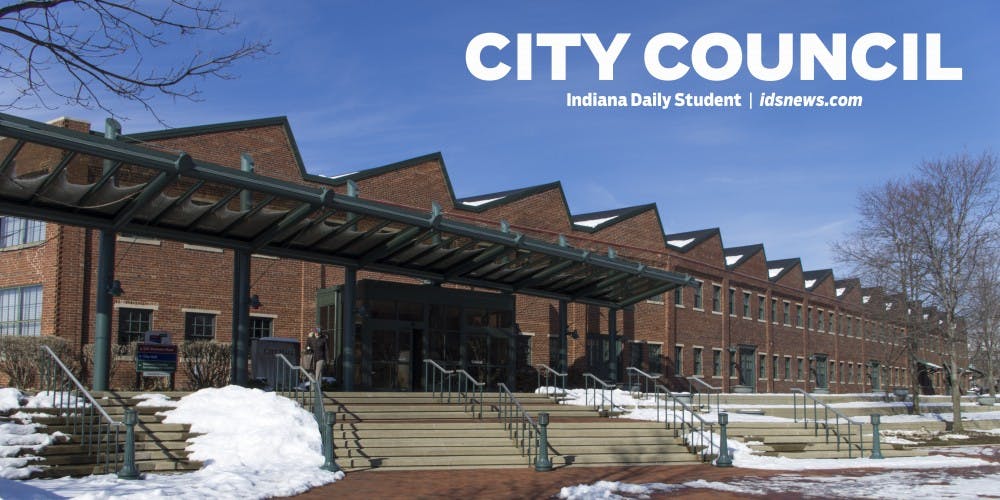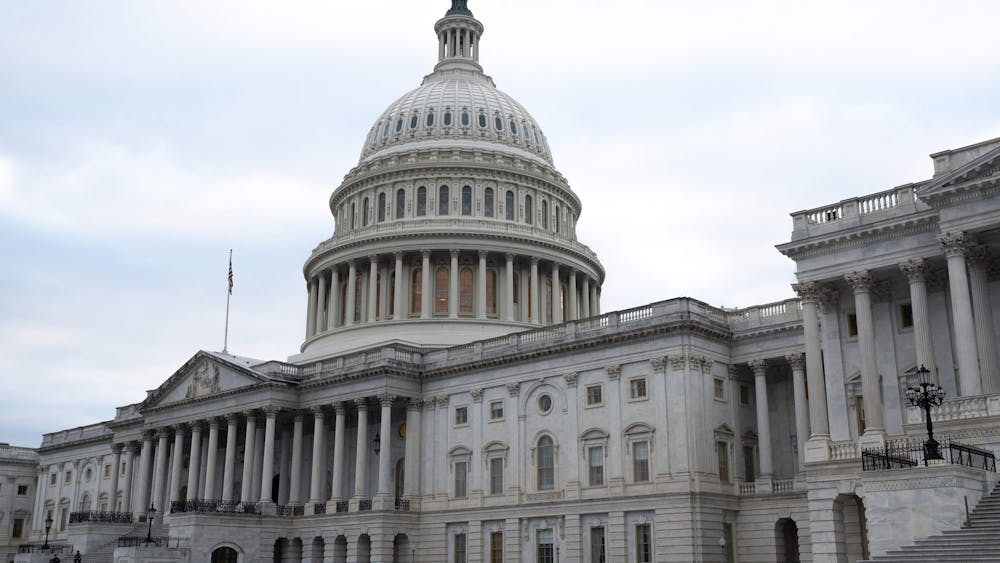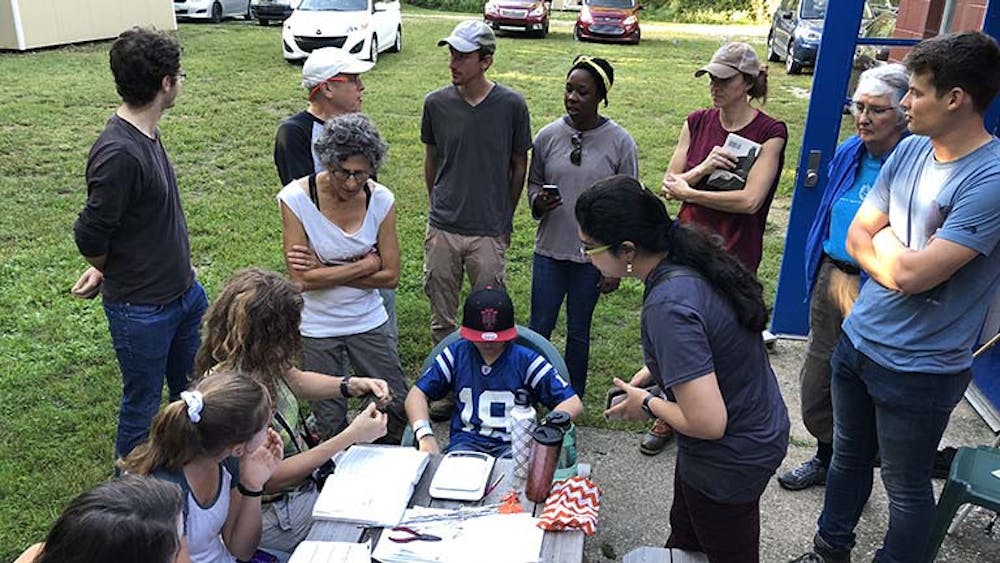The Bloomington City Council approved an ordinance Wednesday night that will grant local drug company Catalent tax cuts for its upcoming expansion. It also heard four ordinances ranging from spending on the Monroe Convention Center expansion to an increase in stormwater fees aimed to improve infrastructure.
Tax cuts for drug company approved
The council approved a proposal by Catalent Pharma Solution, the New Jersey-based drug company that bought Cook Pharmica in 2017, for a 10-year tax abatement as it expands its manufacturing space.
A tax abatement reduces taxes for a company and is given by a government to incentivize development. This abatement will provide approximately $2.45 million in total tax savings to Catalent, according to the company’s presentation at the council meeting. The improvements Catalent is planning to make include increasing its packaging and drug-filling capacities. The improvements are estimated to cost $125 million.
The expansion will provide another 200 jobs in addition to the 839 Catalent employees in Bloomington.
Some council members were cautious to give a tax abatement because the council has given out many in the past.
Councilmember Stephen Volan said the council often used to give tax abatements to new developers such as companies building apartment complexes. However, he thinks Catalent will do more for the community than other companies that have received abatements because of the additional jobs it will provide.
“This is an investment in our community,” councilmember Jim Sims said.
Possible usage of Food and Beverage Tax funds
The council had a more in-depth, second hearing of an ordinance that would allocate $350,000 of the funds collected from the controversial Food and Beverage Tax for the first phase of architectural work on the expansion of the Monroe Convention Center.
In phase one, which will run from March through April, designers from Convergence Design and Schmidt Associates will hear feedback from community members and stakeholders.
Architects will then create the general design of the expansion based on the community’s feedback. The property will also be surveyed and appraised and an assessment of environmental impacts will be done in phase one.
Stormwater fee changes and new water regulations introduced
The council also heard an ordinance for the second time that would increase residents’ monthly stormwater fee for single-family households from $2.70 to $5.95 to pay for new infrastructure.
The fee change wouldn't come all at once but would involve two smaller increases over time.
This would ultimately increase the fee by $39 per year for households and raise $12 million for major infrastructure improvements as well as $4 million for green infrastructure projects.
Vic Kelson, Bloomington’s director of utilities, addressed the growing frequency of extreme weather events caused by climate change and how damaging they can be without infrastructure improvements. He said last week’s flooding was an example of this.
“It’s important to understand that these big events like the one we had last week are going to happen more often,” Kelson said.
Improvements will include building more infrastructure to contain Jordan River flooding and direct overflow into the stormwater system. The increase would also allow the replacement of drainage systems, the reinitiation of neighborhood micro-grants, which can address neighborhood-specific stormwater issues, and the replacement of utility vehicles.
Green infrastructure, which will include rain gardens, permeable paving and detention ponds, will slow flooding and decrease erosion and sediment in water, Kelson said.
The council also heard a new water treatment proposal that would align the city's rules with new Environmental Protection Agency regulations.
Police body and dashcam footage fees could change
The council had a second hearing of an ordinance that would decrease the cost of obtaining police body and dashcam recordings.
The cost would change from a flat rate of $150 to only the direct cost of collecting the footage. The fee would have a cap at $150.
This would put Bloomington’s cost of body camera footage in line with an Indiana state law that sets a cap on fees at $150 and does not set a flat rate for the footage.






